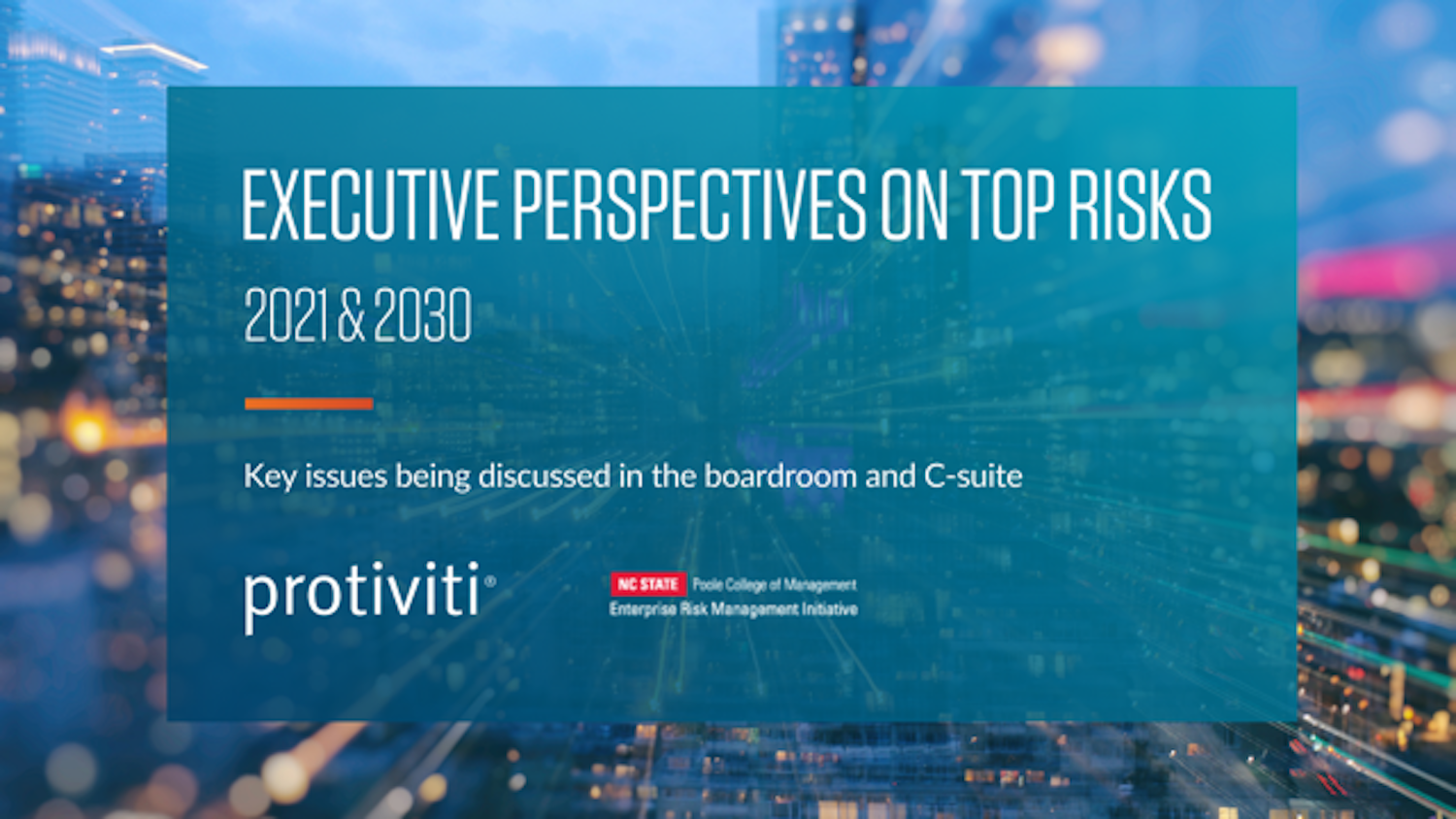The Enterprise Risk Management (ERM) Initiative in the Poole College of Management in conjunction with global consulting firm Protiviti, annually surveys boards of directors and C-suite executives about risks on the horizon for the upcoming year.
The range of uncertainties facing business leaders around the globe is overwhelming. Challenges triggered by a once-in-a-century pandemic continue to unfold, combined with numerous other risk issues, such as growing social unrest and polarization, and ever-present challenges associated with technology and digitization innovations. Staying abreast of emerging risk issues and opportunities is becoming increasingly difficult.
Key Themes
1. Prepare for the next decade by embracing the megatrends, for the future may arrive sooner than you think. There is nothing about 2020 that was not predictable. Pandemic risk has loomed on the horizon for a long time and, like many risks, has always been a matter of when, not if. Yet, only digitally mature companies were future-ready when COVID-19 hit. They were prepared. The next decade promises similar disruptions.
2. The pandemic experience has changed the world. The ongoing COVID-19 pandemic, its effects on customer behavior and business performance, and the economic distress it has wrought are the top three risks on the minds of board members and C-suite executives for 2021. In industries not dependent on the physical concentration of people, digital leaders stood out in pivoting and quickly reacting to the pandemic’s new normal. These companies will most likely continue to maintain their edge going forward to the next “new normal” as they innovate continuously and business models evolve.
3. The future of work looms large on the horizon. Adoption of AI, automation, natural language processing, visual recognition software and other digital advances are expected to displace as well as create millions of job functions, requiring significant efforts to upskill/reskill existing employees. This risk is the fourth-ranked issue in 2021 and the top risk for 2030, making it a defining business challenge for the next decade.
4. Building organizational resilience and an innovative culture is an imperative. Thriving in a dynamic, unpredictable business environment over the near term requires effective responses to risks related to securing data and information systems, acquiring and retaining top talent, and sustaining an innovative culture. When business leaders look to 2030, they are concerned about the future of work, impactful regulatory change, rapid speed of disruptive innovation, talent development, substitute products and services, fleeting customer loyalty, and competing with “born digital” competitors. A trust-based, innovative culture will prove vital to sustaining the organization’s relevance over the next decade.
5. No one expects data security and cybersecurity to diminish. Data privacy and cyber threats are among the top 10 risks in both 2021 and 2030. Cyber threats remain a moving target. Data privacy concerns promise to become even more complex in the digital age. There is no reason to believe these realities will change.
6. Regulatory risk is elevated when viewed through the lens of a longer time horizon. This portends a focus on environmental priorities, social change, data privacy requirements and tax increases, as well as an impetus for developing alternative products and services.
In addition to the report, Protiviti and the ERM Initiative will be hosting a webinar to discuss this year’s findings and what risks executives will be facing a decade from now.
- Categories:
- Series:



